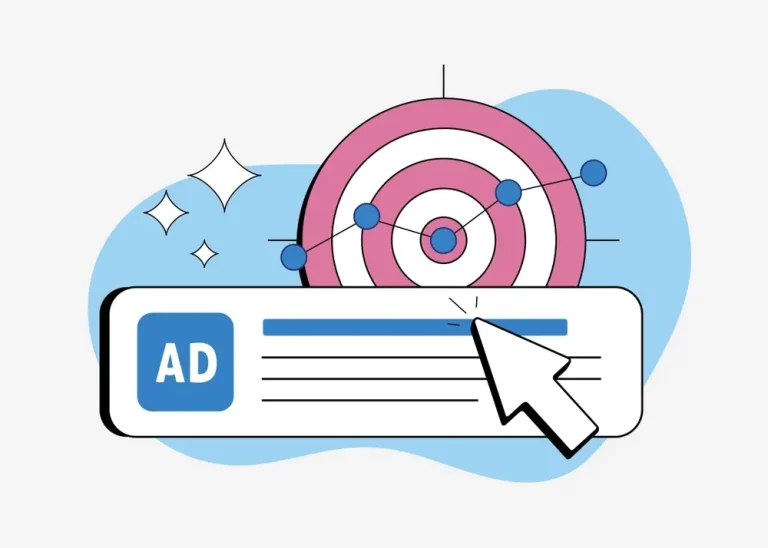Ethical Marketing Practices in the Digital World

In today’s world, we use the internet, social media, and our phones for almost everything. This includes shopping, learning, and even talking to friends. Companies know this, and that’s why they use the digital world to show us their products and services. But it’s important that they do this in a fair and honest way. This is where ethical marketing comes in. Ethical marketing means doing the right thing when promoting products online. Companies should not lie, cheat, or trick people into buying things. Let’s explore what ethical marketing is, why it’s important, and how companies can follow these rules.
What Is Ethical Marketing?
Ethical marketing is about being honest and fair when telling people about products or services. Imagine you have a favourite YouTuber who tells you about a new video game. If they are being ethical, they will give you the truth about the game—what’s good about it, what’s not so good, and whether it’s worth your money. They won’t lie or exaggerate just to get you to buy it.
For example, when companies use video marketing to show their products, they should be clear about what the product can really do. If they make a video showing that a product works better than it actually does, that would be unethical. To learn more about how video marketing affects how people think, check out this link.
Why Is Ethical Marketing Important?
Ethical marketing is important because it builds trust. When companies are honest, people feel they can trust them. Imagine if a company lied to you about their product. Would you buy from them again? Probably not. But if they were honest and fair, even if the product wasn’t perfect, you might give them another chance.
Being ethical also means respecting people’s privacy. Companies collect a lot of information about us when we shop online or use apps. They should not misuse this information. For example, they shouldn’t sell your personal details to other companies without asking you first. Using artificial intelligence (AI) in marketing can be tricky because it can help companies learn a lot about us. However, they need to make sure they use AI in a way that respects our privacy. If you’re curious about how AI is used in marketing, you can read more about it here.
How Can Companies Practice Ethical Marketing?
There are many ways companies can be ethical in their marketing. Let’s look at some of them.
1. Honest Advertising
Honesty is the best policy. Companies should always be truthful in their ads. For instance, if a company says their product is the best, they should have proof to back it up. They shouldn’t make promises they can’t keep. For example, a food company shouldn’t say their snack is healthy if it’s full of sugar and artificial ingredients.
When it comes to online searches, companies can use SEO (Search Engine Optimisation) to make sure their website shows up in search results. However, they need to do this ethically. This means they shouldn’t try to trick search engines by using fake keywords or misleading content. To learn about ethical SEO practices, check out this article.
2. Respecting Customer Privacy
Companies collect a lot of data from us when we use their websites or apps. This can include our names, email addresses, and even what products we like. Ethical companies respect this information and protect it from being stolen or misused. They should also be clear about how they are using our data. If a company wants to send us marketing emails, they should ask for our permission first.
With the growing use of smartphones, it’s also important for companies to ensure their websites are mobile-friendly. This not only improves user experience but also shows that the company cares about making things easy for their customers. Learn more about why mobile optimisation is essential here.
3. Transparency in Pricing
When we buy something online, we expect to pay the price we see. Ethical companies make sure there are no hidden fees. They are upfront about costs like shipping or taxes. This way, customers don’t feel tricked when they reach the checkout page.
4. Fair Competition
Companies should compete fairly with each other. This means they shouldn’t spread false rumours about their competitors or try to sabotage their business. Fair competition is good because it means companies have to work hard to make the best products and provide the best services.
User experience (UX) plays a big role in making sure customers have a good time when they visit a website. A well-designed website that is easy to navigate shows that the company cares about its customers. Companies should always work on improving their websites to provide the best experience. To understand the importance of UX in marketing, visit this link.
5. Social Media and Influencer Marketing
Many companies use social media and influencers to promote their products. Influencers are people who have a lot of followers on platforms like Instagram or YouTube. When they recommend a product, their followers often trust their opinion. Ethical companies make sure that influencers are honest about whether they were paid to promote a product. This way, followers know if the recommendation is genuine or if it’s an advertisement.
As social media continues to grow, companies need to be aware of how they use it for advertising. They should make sure their ads are clear and not misleading. For insights into the future of social media advertising, take a look at this article.
Examples of Ethical Marketing Practices
Let’s look at some examples of ethical marketing practices that companies should follow.
1. Honest Product Reviews
When a company asks customers to leave reviews, they should make sure those reviews are real. Fake reviews, whether positive or negative, are unethical. Customers rely on reviews to decide if they want to buy a product. If a company uses fake reviews, it can lead to people buying products that don’t work or aren’t as good as they seem.
The concept of social proof is important here. Social proof means that people are more likely to do something if they see others doing it. For example, if you see that a lot of people like a certain video game, you might want to try it too. However, it’s important that companies don’t fake social proof by using fake likes or reviews. You can read more about the impact of social proof on consumer behaviour here.
2. Environmentally Friendly Marketing
Ethical companies also think about the environment. This means they try to reduce waste and pollution. For example, a company might use eco-friendly packaging or support causes that help protect the planet. They should also be honest about their environmental efforts and not exaggerate what they are doing.
3. Transparency About Partnerships
When a company works with another business or an influencer, they should be clear about it. For example, if a celebrity is paid to promote a product, they should tell their followers that it’s a paid advertisement. This way, people know that the celebrity is being paid to talk about the product and isn’t just doing it because they love it.
The Future of Ethical Marketing
As technology advances, the digital world is changing rapidly. Companies need to keep up with these changes and make sure they are still being ethical. Here are some things to think about for the future of ethical marketing.
1. The Role of Artificial Intelligence (AI)
AI is becoming more and more common in marketing. It can help companies learn a lot about their customers and create personalised ads. But with great power comes great responsibility. Companies need to make sure they use AI in a way that respects people’s privacy and doesn’t manipulate them into making decisions they wouldn’t normally make. You can explore the role of AI in modern marketing here.
2. Digital Marketing Trends
The digital world is always changing, and so are the ways companies market their products. It’s important for companies to stay up to date with the latest trends and technologies, but they must also ensure they are using these tools ethically. For example, data analytics can help companies understand their customers better, but they need to use this information responsibly. To learn more about how data analytics can be used for ethical marketing, visit this link.
3. The Importance of a Strong Digital Presence
Having a strong digital presence means being visible online in a way that is positive and ethical. This includes having a well-designed website, being active on social media, and making sure all online content is honest and accurate. Companies should aim to create a digital presence that builds trust and loyalty among their customers. Find out how a strong digital presence can transform a business here.
| Ethical Marketing Practice | Description | Benefit | Supporting Data |
|---|---|---|---|
| Honest Advertising | Providing truthful information about products/services. | Builds customer trust and loyalty. | 70% of consumers say trusting a brand is more important today than in the past. |
| Transparency in Pricing | Clearly displaying all costs, including taxes and shipping. | Reduces cart abandonment. | Nearly 50% of shoppers abandon their carts due to unexpected costs. |
| Respecting Customer Privacy | Protecting customer data and being transparent about data usage. | Prevents legal issues and builds trust. | 86% of consumers are concerned about their data privacy. |
| Fair Competition | Competing without spreading false information about competitors. | Promotes innovation and consumer choice. | Ethical companies are more likely to retain customers long-term. |
| Sustainable Marketing | Using environmentally friendly practices in marketing. | Attracts eco-conscious customers. | 55% of consumers are willing to pay more for products from sustainable companies. |
Conclusion
Ethical marketing is all about doing the right thing when promoting products and services online. It’s important for companies to be honest, respect customer privacy, and treat their competitors fairly. By following ethical marketing practices, companies can build trust with their customers, which can lead to long-term success.
As we move into the future, companies will need to keep up with new technologies and trends while staying true to ethical principles. Whether it’s using AI, staying updated with digital marketing trends, or ensuring a strong digital presence, the key is to always be fair and honest in all marketing efforts.
Ethical marketing is not just about following rules; it’s about building a relationship with customers based on trust and respect. When companies prioritise ethics in their marketing strategies, everyone benefits—the company, the customers, and society as a whole.
Contact Us
You can contact us on Whatsapp:
or fill up the contact form





